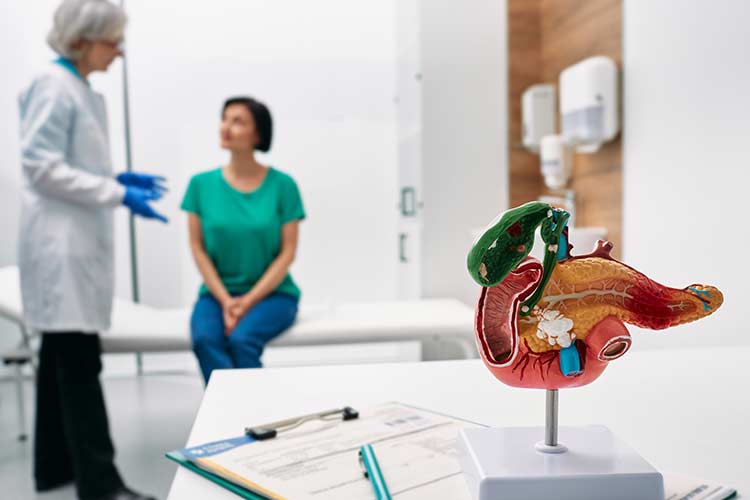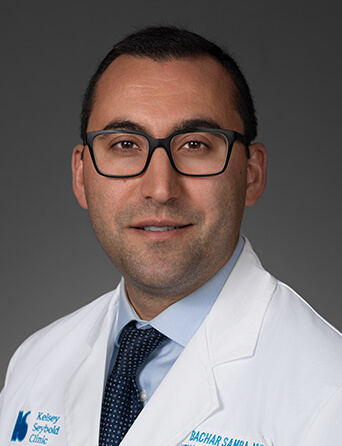Join Our eNewsletter!
Subscribe to our monthly newsletter to receive encouraging advice to help you lead a healthy lifestyle.

Pancreatic Cancer: Hard To Detect and Challenging To Treat
A pancreatic cancer diagnosis can feel overwhelming to someone new to the disease. Have you heard someone share that they have pancreatic cancer, and then it brings silence to the conversation? People seem to know the likelihood of survival rate is low.
Pancreatic cancer has one of the highest mortality rates of all major cancers. The American Cancer Society estimates that approximately 60,000 people will be diagnosed with the disease in 2023 and 50,550 will die from it. Over a five-year period with all stages combined, the survival rate is less than 10%.
But even though pancreatic cancer has a poor survival rate, complete remission is possible with early detection and treatment.
Pancreatic Cancer Symptoms
The pancreas helps with digestion and produces hormones that help manage blood sugar.
Early warning signs can be critical in the diagnosis of pancreatic cancer. Unfortunately, the early stages don’t produce symptoms until they’re more serious and usually spread to other organs. Symptoms can appear common (back pain, indigestion) or overlap with other illnesses or diseases.

Pancreatic cancer symptoms to be aware of include:
- Abdominal pain that may radiate to your back
- Jaundice (yellowing of the skin and whites of your eyes)
- Itchy skin
- Fatigue
- Loss of appetite or unintended weight loss
- Dark-colored urine
- Light-colored stools
Why Treatment Is Challenging
Pancreatic cancer a low survival rate for a number of reasons:
- It’s hard to detect early. The pancreas is deep within the body so there aren’t signs people can detect easily and early-stage pancreatic tumors don’t show up on imaging tests. For this reason, many people don’t receive a diagnosis until the cancer has spread.
- The disease spreads quickly to other nearby organs, including liver, intestines, and gall bladder.
- A recurrence of the disease is likely.
Treatment Options
There are a variety of treatment options available. These include surgery, chemotherapy, targeted therapy, radiation therapy, clinical trials, and alternative therapy.

Most people with pancreatic cancer receive chemotherapy, which uses drugs to kill cancer cells. It can be injected into the veins or taken orally.
Radiation therapy may be combined with chemotherapy. It uses high-energy X-rays to kill cancer cells by targeting beams right at the stomach. This treatment requires consistent visits, usually five days a week, for several weeks.
Surgery is an option in the earlier stages of pancreatic cancer when the tumor is smaller and hasn’t spread to other organs. Doctors may be able to surgically remove a portion of the pancreas or the entire pancreas, depending on the stage and location of the cancer.
Our Cancer Center Team
Meet our team of caring and compassionate Hematology and Oncology specialists. To learn more about our specialists, click on the links below to view their online bios and watch their video profiles.
To schedule an appointment, call 713-442-1080
Hours: Monday – Friday, 8 a.m. to 5 p.m.








